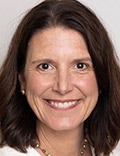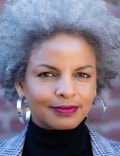It should come as no surprise that when physicians speak out on social and political issues, there is sometimes a backlash. This can range from the typical trolling that occurs online to rarer cases of professional penalties. Two doctors were fired by NYU Langone Health late last year after they posted social media messages about the Israel-Hamas war. Still, many physicians are not only willing to stand up for what they believe in, but they see it as an essential part of their profession.
“We’re now at a place where doctors need to engage in public advocacy as an urgent part of our job,” wrote Rob Davidson, MD, an emergency room physician, at the onslaught of the COVID-19 pandemic. In an Op-Ed piece for The Guardian, Davidson noted how the virus forced many physicians into becoming “activist doctors,” calling for adequate personal protective equipment and correcting misinformation. “What we want above all is for the administration to listen to doctors, nurses and frontline health workers — and stop playing politics,” he wrote.
“It’s Not About Being Political”
The intersection of medicine and politics is hardly new. Doctors frequently testify before Congress, sharing their expertise on issues concerning public health. This, however, isn’t the same as “playing politics.”
“I’m not taking political stances,” said Megan Ranney, MD, Dean of the Yale School of Public Health. “Rather, I’m using science to inform best practices, and I’m vocal around the area where I have expertise where we could do collectively better.”
Ranney’s work to end firearm injury and death garnered particular attention when she co-authored an open letter to the National Rifle Association (NRA) in 2018. She wrote the letter in response to a tweet by the organization, admonishing physicians to “stay in their lane” when it comes to gun control.
Ranney’s letter discussed gun violence as a public health crisis and urged the NRA to “be part of the solution” by joining the collective effort to reduce firearm injury and death through research, education and advocacy. “We are not anti-gun,” she stated. “We are anti-bullet hole,” adding that “almost half of doctors own guns.”
The NRA disagreed. When Ranney testified before Congress during a hearing on gun violence in 2023, NRA spokesperson Billy McLaughlin condemned her testimony as an effort to “dismantle the Second Amendment,” calling Ranney “a known gun control extremist.”
“If you actually read what I write, or if you actually listen to what I say, I’m not saying things on behalf of one political party or another,” said Ranney. “It’s not about being political. It’s about recognizing our role in describing what’s happening and making it clear for the world to see. Showing where, based off of data, there may be a better path to improve health and wellbeing.”
In spite of the backlash, Ranney has no regrets about being an activist. “In the current media landscape, folks love to slap labels on people that may or may not be accurate. To me, what matters isn’t where I land with a particular politician or political party, but how the work that I do improves health for populations.”
When the Need to Act Outweighs the Fear
Laura Andreson, DO, an OB-GYN, took activism a step further when she joined a group of women in Tennessee to file a suit against the state, the attorney general, and the state board of medical examiners. The issue was the Tennessee’s abortion ban, which the suit claimed prevented women from getting “necessary and potentially life-saving medical care.”

Andreson, who says she was “not at all” politically active in the past, began to realize how the abortion ban could drastically affect her profession and her patients. “I don’t know what flipped in me, but I just felt like I could do this,” she said.
Like Ranney, Andreson has been as visible as she has been vocal, giving press conferences and interviews, but she acknowledges she has some fears about safety. In fact, after filing the lawsuit, the Center for Reproductive Rights recommended that she go to a website, DeleteMe, that removes personal data from the internet, making it more difficult for people to find her information. “But my need to do this and my desire to do this is stronger than my fears,” she added.
Andreson, who is part of a small practice, did check with both her coworkers and the hospital administration before moving forward with the lawsuit. She was relieved to find that she had the support of her practice and that there wasn’t anything in the hospital bylaws to prevent her from filing the lawsuit. “But the people in the bigger institutions who probably have an even better expert base than I do, they are handcuffed,” she said.
It has been, in Andreson’s words, “a little uncomfortable” being on the board of the Tennessee Medical Association when the Tennessee Board of Medical Examiners is part of the lawsuit. “We’re all members of the same group,” she said. “But I’m not suing them as individuals; I’m suing them as an entity that is under our government.”
Andreson said most people have been supportive of her activist work, though she admitted to feeling frustrated when she encounters apathy from fellow OB-GYNs. She got little response when she circulated information explaining the abortion laws and trying to get others involved. But she still sees education as being a key part of making change happen.
“I think advocacy, as someone who is considered a responsible, trustworthy person by your community, is important, because you can sway some people just by educating them,” she said.
Fighting Inequities in Medicine and Beyond
Christina Chen, MD, says she felt very supported by her medical community at the Mayo Clinic in Rochester, Minnesota, when she and 16 other Asian American physicians posted a video on Instagram in 2020 highlighting increased violence and harassment of Asian Americans during COVID-19. It soon went viral, and the Mayo Clinic distributed it across their social media channels. The only negative repercussions Mayo faced were a few posts on social media saying that politics should not be brought into the healthcare space. Chen disagrees.

“Social issues and political decisions have direct impact on the health of our communities,” Chen said. “We know that we still have a long way to go to solve health inequities, which is a public health problem, and we all play a huge role in voicing our concerns.”
Activism, however, seems to be more complicated when it involves physicians being critical of inequities within the medical field. Nephrologist, Vanessa Grubbs, MD, MPH, founded the nonprofit Black Doc Village in 2022 to raise awareness about the wrongful dismissal of Black residents and expand the Black physician workforce.
Grubbs said that the medical community has not been supportive of her activism. “The reason why I’m no longer in academia is in part because they got very upset with me tweeting about how some trainees are biased in their treatment of attendings,” she said. “Senior white men attendings are often treated very differently than junior women of color faculty.”

Grubbs also expressed her views in 2020 essay in the New England Journal of Medicine where she criticized academic medical institutions for ignoring systemic racism, paying lip service to diversity, equity, and inclusion, and staying “deafeningly silent” when issues of racism are raised.
Today, Black Doc Village is focused on conducting research that can be used to change policy. And Grubbs now has the full support of her colleagues at West Oakland Health, in Oakland, California, which aspires to advance the Bay Area Black community’s health and dignity. “So, no one here has a problem with me speaking out,” she added.
The emphasis on data-driven activism as opposed to “playing politics,” is a recurring theme for many physicians who publicly engage with social issues.
“It’s not partisan,” Ranney said. “Rather, it’s a commitment to translating science into actionable steps that can be used regardless of what political party you are in. My job is not to be on one side or the other, but to advance human health.” These doctors challenge their critics to explain how such a goal is outside their purview.

